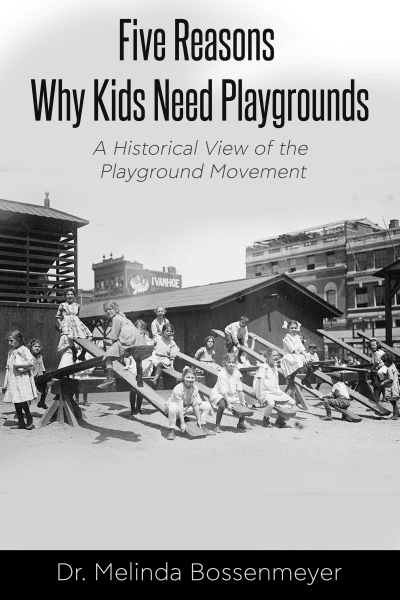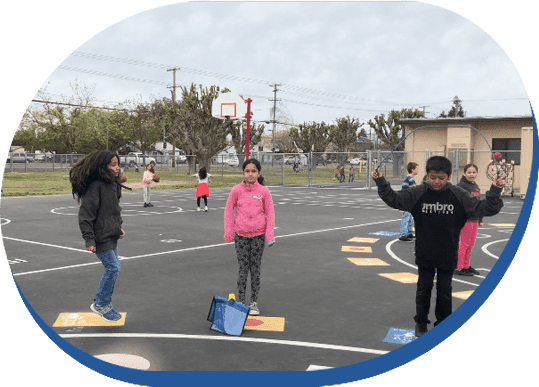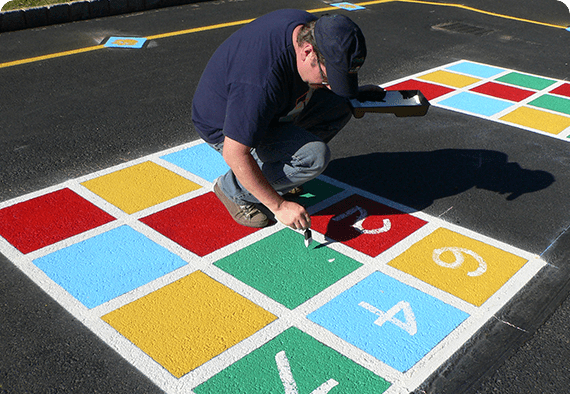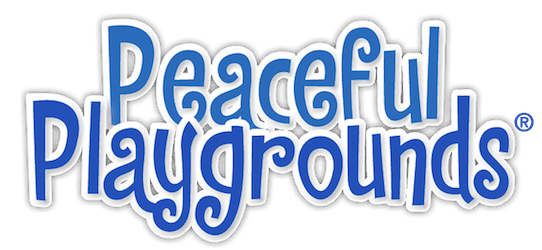A Historical Perspective of the Playground Movement : 5 Reasons Kids Need Playgrounds
By Dr. Melinda Bossenmeyer, The Recess Doctor

5 Reasons Kids Need Playgrounds
I read an article in the Iowa County Democrat Newspaper dated, May 13, 1909 about playgrounds. It's a period in American history that advocated for reasons kids need playgrounds. Yet, advocacy for a safe place for children to play is relevant even today.
Public Playground Movement
The public playground movement is getting attention in many parts of the country. It is a movement the effects people of all cities and villages, and the health and happiness of children in general. If the youth of today are to grow into upright, vigorous manhood and womanhood, their lives should not be stunted by depriving them of privileges that are rightly theirs.
Playgrounds are conducive to the health of children.
5 Reasons Why There Should Be More Playgrounds
Dr. Luther Gulick of New York in a recent lecture on the subject of the playground movement gave five reasons why there should be more public playgrounds:
First, because so many accidents to children occur through their playground on the streets.
Second, playgrounds lessen juvenile crime.
Third, playgrounds are conducive to the health of children.
Fourth, boys and girls need to learn to govern themselves and acquire the kind of self-control that comes from discipline on the playground, where the government is largely that of public opinion.
Fifth, we need playgrounds, and we need a knowledge of how to better use our legal holidays, that we may convert the Fourth of July from a day in which children are killed, the property is burned, and people are annoyed, into a day on which the whole community co-operates. In a splendid festival that brings together the various elements of the city, provides athletic games and celebrations for children, and inculcates the value of liberty.
Playgrounds Are An Effective Solution to Urban Life
The playground movement is certainly a commendable one and should be given attention in Mineral Point. The reasons above stated why the movement should be encouraged are valid reasons. W.H. De Lacy, a judge of the juvenile court of the District of Columbia recently said:
"I regard well-equipped and efficiently supervised playgrounds as one of the most effective means of saving city children from violations to which they are peculiarly exposed and predisposed by the pressure and complications of modern urban life."
One has well said that when a boy goes out on the street and cuts up some deviltry it is not primarily because he is inherently vicious, but because he is inherently energetic- as he ought to be and the things for us to do that is wholesome.
Although Mineral Point is not a very large city, problems in dealing with boys and girls that confront large cities confront us. Let us give every possible encouragement to efforts to provide parks and playgrounds, where children may meet in the open, enjoy innocent amusements, and be kept away from temptations and allurements which debase and destroy young womanhood and young manhood.
Like Judge De Lacy, I have made the case that idle time on the playground without playground equipment, markings, and games in general, leads to problems on the playground.
Melinda Bossenmeyer, Ed.D. is an expert witness for school supervision, playground injury cases, physical education, and coaching cases related to supervision. Professional articles by Dr. Bossenmeyer © Peaceful Playgrounds 1998 All Rights Reserved
What Principals Are Saying About Peaceful Playgrounds

Peaceful Playgrounds Recess Program
Our Most Popular Program – Add 100 painted games to your playground
Are you noticing more playground conflicts?
Children are not immune to life's stressors. Increased use of technology and the pressures of growing up can take a toll on our learners.
From lack of interest to overcrowded playgrounds, school recess can become an overwhelming and chaotic operation. In fact, principals and recess supervisors across the nation will tell you recess discipline remains one of the biggest issues school staff and administration face.
Over 9,000 schools across the nation have implemented Peaceful Playgrounds Recess Program and they've noticed significant improvement in their playground environments and kids health and physical activity.



